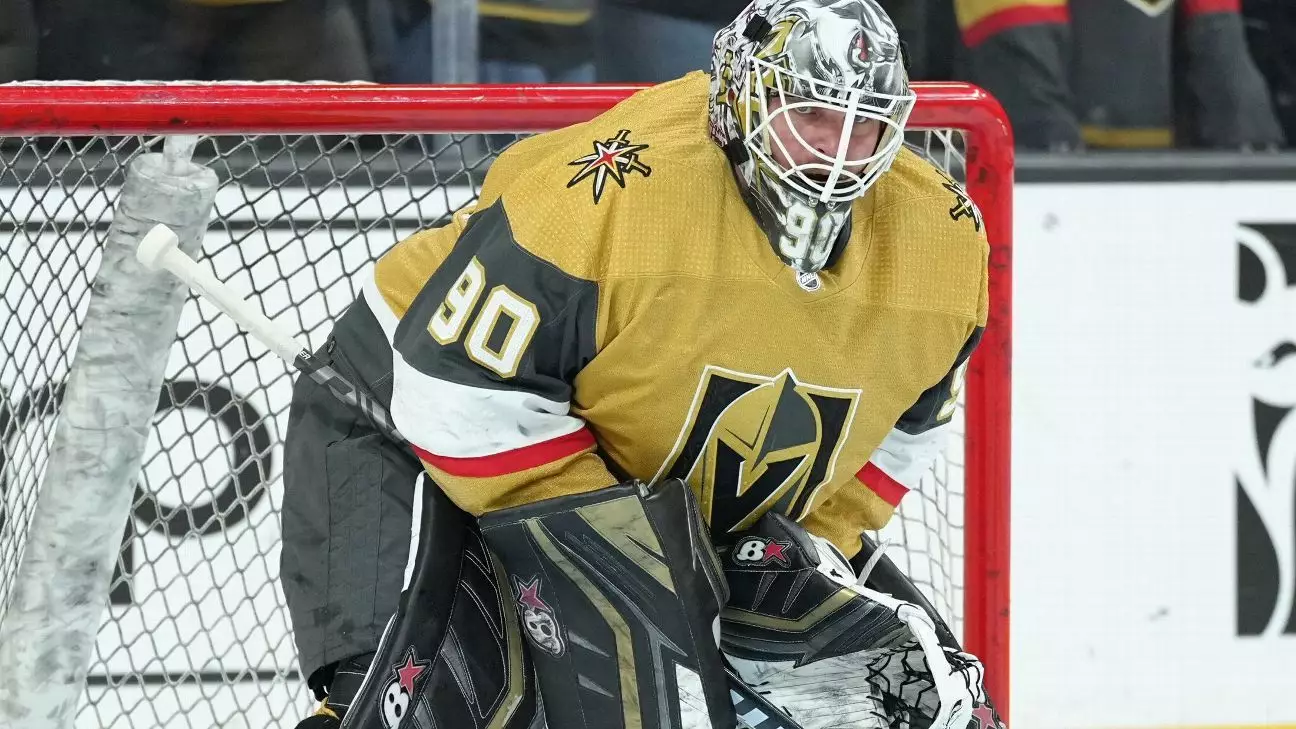In a surprising turn of events, goaltender Robin Lehner remains optimistic about his future in the NHL despite facing significant challenges. As he communicates with the media, notably Sportsnet, Lehner expressed hope for a resolution regarding his standing with the Vegas Golden Knights, stating, “All I can say at this time is everyone knows why I couldn’t be there. I am waiting calmly for things to be sorted out.” This statement opens a window into the complexities of his situation and the uncertain landscape of professional sports.
Lehner was sidelined after undergoing hip surgery in August 2022, which led to his placement on long-term injured reserve (LTIR). Since that pivotal moment, there has been a noticeable silence from the Golden Knights’ management regarding his fitness for the game and future with the franchise. Although little has been discussed about his potential return to the ice, the goaltender’s commitment to remaining engaged during this difficult period stands out.
Analyzing Long-Term Injured Reserve Implications
The LTIR designation provides both protection for players and tactical flexibility for teams concerning salary cap management. In Lehner’s case, while on LTIR, he doesn’t count against the salary cap, a crucial element for the Golden Knights considering that he is in the final year of a contract worth $4.4 million. If Lehner fails to report back to the team and they subsequently terminate his contract, his cap hit, which is anticipated to be around $5 million, would be lifted from the books. This could grant the team breathing room in their financial structure, but at the cost of Lehner’s future with the organization.
General Manager Kelly McCrimmon has emphasized the club’s position, noting, “He continues to be unfit to play,” while highlighting some unique circumstances surrounding Lehner’s condition that are being discussed amongst the NHL, the NHL Players’ Association (NHLPA), and the team itself. This acknowledgment hints at underlying complexities regarding player health, contractual obligations, and team dynamics that are often overlooked in sports discussions.
Looking Towards the Future
The uncertainty surrounding Lehner’s return raises critical questions about the longevity of athlete careers in professional sports, particularly regarding recovery from serious injuries. Lehner’s hopeful attitude is commendable, and it sheds light not only on his dedication but also on the psychological resilience athletes must maintain during such arduous periods.
As the league and the players’ association navigate the intricacies of Lehner’s situation, it’s essential to consider the broader context of player health and the associated pressures from various stakeholders, including teams, fans, and media. Maintaining an appropriate balance between player well-being and organizational performance is paramount, and how the Golden Knights handle Lehner’s case may set a precedent for future scenarios involving injured players.
Robin Lehner’s journey is emblematic of the challenges faced by many athletes navigating the complex landscape of injuries and contract negotiations in professional sports. As developments continue to unfold, the hockey world will undoubtedly be watching closely, anticipating the outcome for both Lehner and the Golden Knights as they aim to forge a path toward resolution.


Leave a Reply